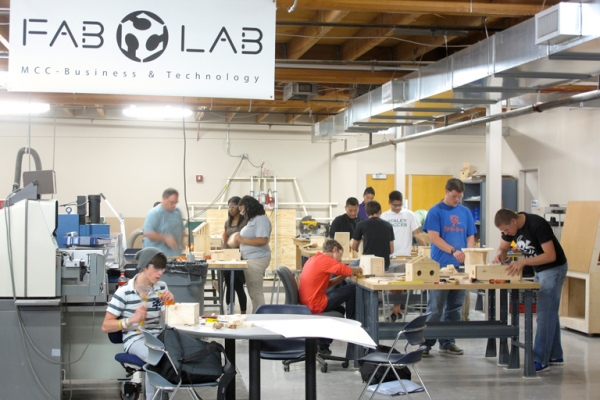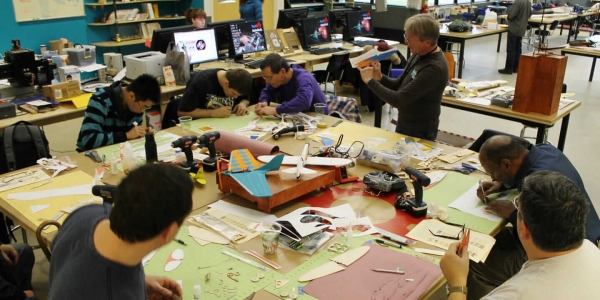
Look around your room or office. There are everyday objects ranging from furniture to electronic goods. How many of them did you make yourself? Probably none or very few items. Most objects are probably bought from stores. But, if there are a lot of objects around that you made yourself, you are a maker.
Maker is someone who satisfies his needs through making. The maker movement spirit is defined by Mark Hatch, who is the founder of Tech Shop, a makerspace: 1) make, 2) share, 3) give, 4) learn, 5) too up, 6) play, 7) participate, 8) support, and 9) change. The details of each can be found in The Maker Movement Manifesto written by Mark Hatch.
Other than Mark Hatch, one of the leaders of maker movement is Dale Dougherty, who founded Maker Media and Maker Faire, the biggest international maker festival. He started the maker movement when he held a TED Conference lecture, titled ‘We are makers’, in Jan. 2011. Another founding fathers of maker movement is Massimo Banzi, who is both a developer of Arduino, an open-source electronic prototyping platform that allows users to bring interactive electronic objects to life, and interaction designer. He also catalyzed maker movement with a TED Conference, lecturing on various cases of making done with Arduino. With numerous other leaders striving to widen the scope of maker movement, one of the countries maker movement is most active is America. In 2010, former president Barack Obama started The White House Science Fair as a part of a week of Administration activities for celebration of science and technology. A most well known case of the fair was by Joey Hudy, 14 years old boy who made a marshmallow cannon out of PVC pipes and gave former president Obama a business card written ‘Don’t Be Bored, Make Something’. Impressed by Joey Hudy, former president Obama started another event called Maker Faire in 2014. The next maker festival on the calendar is the USA Science and Engineering Festival, which is America’s largest celebration of STEM (Science, Technology, Engineering, and Mathematics).
On the other hand, Korea has just begun the maker movement. In Korea, there are only two Fablabs (Fabrication Laboratory), a laboratory designed for makers that started at Massachusetts Institute of Technology. One is called Fablab Seoul managed by TIDE Institute in Seoul and the other is Idea Factory located in KAIST (Korea Advanced Institute of Science of Technology). There are several different aspects of Korea that hamper the growth of maker movement in Korea. First, Koreans are so densely populated that securing enough space to make is challenging. Second, the primary, secondary, and tertiary education in Korea are focused on college entrance examination and even higher education is dedicated to prepare students for employment examination. So, there is no time for making. However, on the same token, if makers get together and secure a makerspace in a populated area, it can be an opportunity to further spread maker community. Also, since education is a significant part of Korean culture, by modifying education curriculums one by one, majority will get a chance to experience maker culture.

There is a platform where makers can effectively inspire others to join them: YouTube. YouTube can be not only a place where makers can showcase their work and feel pleasure but also where viewers can be inspired and even learn about making. One of the most popular maker channels on YouTube is Geekble (geek plus able). Geekble makers pride themselves for only making useless stuffs; they make stuff from a life-size car from a game called Kart Rider to magic flying carpet from the movie Aladdin. In one of their videos, they claim that the discoveries or inventions that are used widely today came unexpected and from useless inventions that they make, there can be great discoveries hidden.
The manager of the POSTECH makerspace, Shin Joon-ho, concurs with the philosophy of Geekble. He remarks that “Koreans think too much when they make something. Will this be useful? Will I succeed?” Shin asserts that makers do not necessarily have to invent for the sake of better world. He asked people to “make beautiful trash” because real products can be derived from those ideas. “Making itself is meaningful.”
With all the efforts that the current makers are putting into spreading the maker spirit in Korea, the opportunity for one to become a maker is increasing every day. It is easy to start. Just try watching a video that makers put on YouTube. Make yourself a maker!


